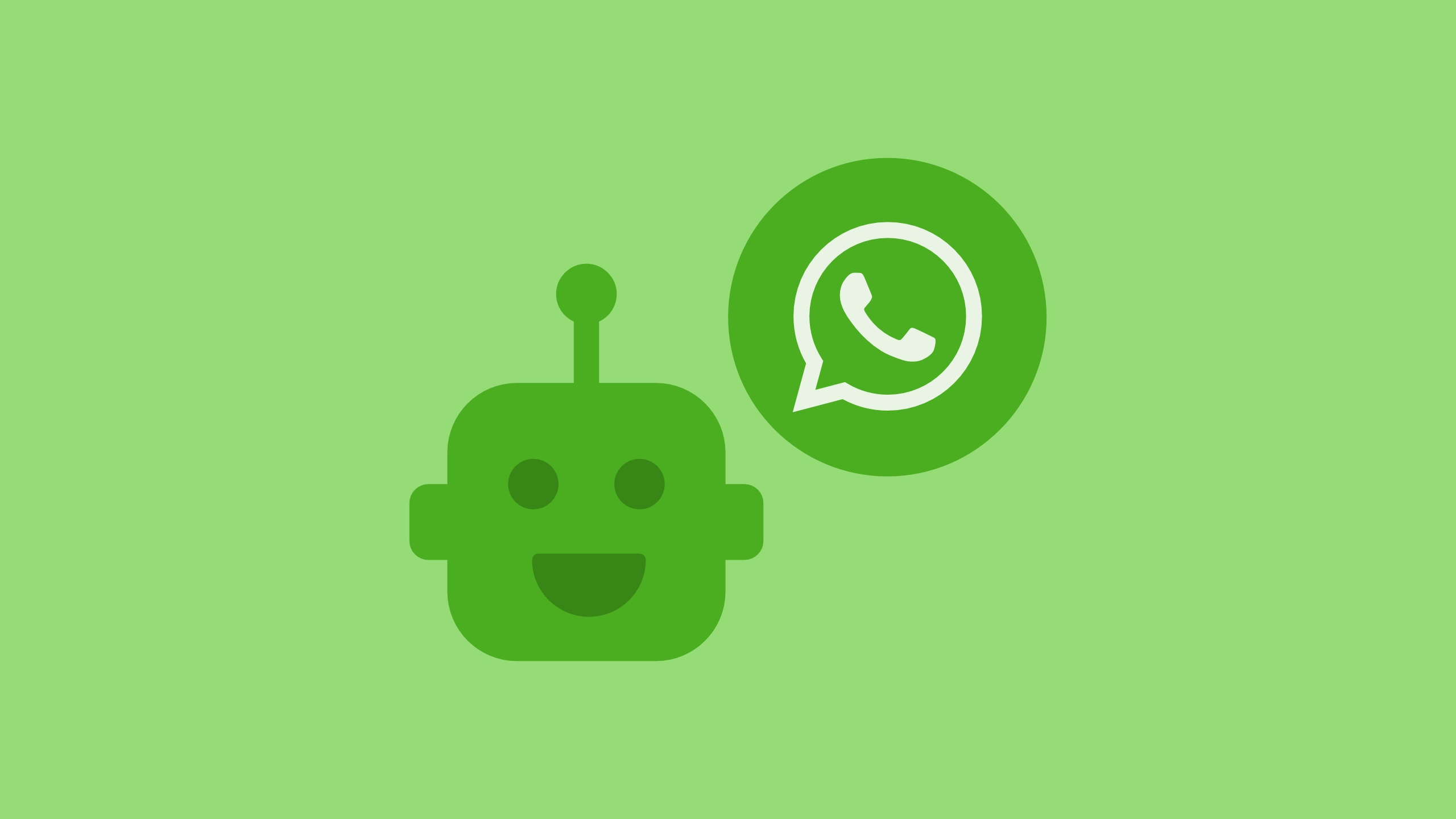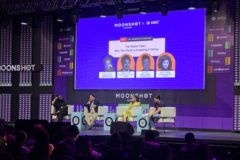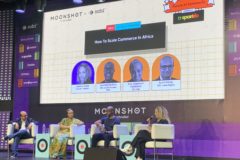The rise in popularity of ChatGPT, OpenAI’s artificial intelligence-powered conversational chatbot, has brought much attention to the capabilities of chatbots.
Previously relegated to assistants on business websites, ChatGPT has shown that chatbots can do much more. One area which is showing the huge potential of chatbots is WhatsApp.
Whatsapp is without a doubt the most popular app on the continent, a title it has achieved due to its low data usage and ability to be supported even on the cheapest smartphones.
In South Africa, the trend is no different. According to statistics, as of 2020, 96% of internet users in the country use WhatsApp, making the channel the most popular social media platform in South Africa. With 23 million users in 2021, it is predicted that user numbers will hit nearly 28 million by 2026.
It is this combination of factors that have made some developers in the region gravitate towards creating WhatsApp chatbots instead of, say, mobile apps. The trend has seen a couple of interesting use cases being put into the market.
TechCabal spoke to developers of four of these chatbots to find out more about their decision to build them, the traction they have garnered, their uses cases and much more.
Fivvo Pay
Fivvo Pay is a chatbot commerce solution that enables entrepreneurs to sell and market their businesses to ever-growing users on messaging platforms. The service seeks to automate the sales process for township businesses.
“We’ve been operational for close to a year and up to date, we’ve transacted a volume of transactions amounting to over R700,000,” said Bruce Mkhaliphi, founder of Fivvio Pay.
The chatbot has the ability to integrate with Shopify, allowing store owners to seamlessly avail their store inventory on Whatsapp through a simple plugin. To address the challenge of making deliveries in townships, where last mile delivery logistics can be a nightmare, Fivvo Pay has partnered with Uber to simplify this process.
“To address the delivery problem, what we had to do, with every township that we go to, would be to get guys who have motorbikes, bicycles, and form a delivery company for them. And then they would run it and then we just use our platform for them to get orders and deliver them. But now we are actually integrated into Uber such that we can scale much more easily across the country,” added Mkhaliphi.
Additionally, Fivvo Pay has integrated ChatGPT to make it easier for customers to place orders through automation or “quick checkout”, providing much needed convenience. However, getting the word out about the chatbot has proven to be a challenge for Fivvio Pay.
“Marketing is a big expense for us at the moment, because we are bootstrapping and don’t have any funders or anything like that. To address this challenge, we rely on the merchants to actually market the product to the customers and though the technique has not caught on like wildfire, it has proven to be effective,” said Mkhaliphi.
Meeticks Africa
Meeticks Africa is a suite of three products, all utilising the WhatsApp chatbot API. The first one is an ecommerce marketplace that connects consumers to vendors and suppliers. The second product is what Bashanganyi Magwape, co-founder of Meeticks Africa, calls “Google Forms over WhatsApp.” It allows the creation of multiple forms over Whatsapp, from customer support, customer feedback, to basic forms for data entry.
The third product is an edtech chatbot which delivers bytesized lessons to users. “We call it micro learning. From those bite-sized learnings, we think it’s easier for people to get basic information. We ran an education campaign on plastic waste but it could be education about new products for corporates. It could be used for in-house training. But basically, it’s bite-sized learning and the idea was to not bore people with long lessons when they can take it bit by bit,” added Magwape.
All the products are free for end users and Meeticks makes its money by availing its audience to potential advertisers, most of whom are corporates.
“So for example, through our edtech platform, we have 1500 users. So we can go to people who provide education services and say, get access to all these users and then we make money from our partners who want to access these users for their service. For example, if a company wants to run a survey, we can allow them to use our users as respondents at a fee,” said Magwape.
With regards to scaling, the challenge is getting locals to assist with business development. But according to Magwape, Meeticks is growing as it’s easy to set up in any other country.
“All we need is a company and a Whatsapp number, and we are able to hit the ground running immediately.”
Digify Africa
Digify Africa is a youth-led organisation based in Johannesburg that offers free digital skills to the youth, learners, educators, women, and entrepreneurs in South Africa, Kenya, and Nigeria.
To provide Africans with innovative ways of learning, Digify Africa has developed several WhatsApp chatbots. Kitso, which means knowledge in Setswana, is a WhatsApp learning bot created to equip teachers, parents, and learners with the skills to navigate the internet space better. Lesedi, meaning light in Setswana, offers users digital skills such as digital marketing, accessing services online, etc. According to Digify Africa, Kitso and Lesedi have 300 million messages combined, and 500,000 learners visiting them.
Digify Africa has also launched into the market a comprehensive digital learning solution delivered via WhatsApp chatbot that provides learners with access to a wide range of digital skills and training opportunities utilising ChatGPT
“Digify Africa has a mission of trying to use digital skills and the opportunities in the digital economy to empower mainly young people to try and build their own livelihoods, create jobs, create businesses, and, you know, live a sort of sustainable, dignified life with digital skills, you know, helping them achieve those goals,” said Gavin Weale, founder and CEO of Digify Africa.
The chatbots’ main goal is to try to reach young people in Africa who may have limited access to data and technology, particularly in South Africa, where data is expensive and young people don’t always have a laptop or a decent smartphone for mobile apps.
Digify Africa has numerous partnerships which it uses to scale their chatbots products. Firstly, they partnered with Meta to create Kitso, which mostly teaches internet safety to young people. The chatbot is part of a programme called LizweLam, which is about helping mainly high school learners to stay safe online.
The other partnership is with the Department of Education, to try and reach educators and teachers. Through the Lesedi chatbot, the partnership seeks to impart basic digital literacy to anyone in the country and beyond.
“We are really trying to scale these chatbots to reach a million learners in South Africa. We are also trying to integrate them into a broader system that we’re building where users can join at a basic level and advance to intermediate training, advanced training, and all the way to some of our other programmes that assist users to get into a job or, freelance career or entrepreneurship,” concluded Weale.
MobileGPT
After graduating with a chemical engineering degree in 2004 and doing stints in corporate until 2017, Bertha Kgokong decided to venture into software development. Through her company Tati Digital Software Development, she has created numerous products including MobileGPT. The chatbot offers a wide range of services, including generating images and documents such as business plans, cover letters, and resumes.
The service offers a free 24-hour trial period, after which users have to pay a subscription fee of $20 to use it. According to Kgokong, the reception of the chatbot has been nothing short of amazing.
“A lot of people that have tried it have just been like, this is amazing. People love the convenience of having such a service on their mobile device. We are getting like a couple of thousand signups a day so I definitely see this growing and becoming a huge service,” she noted.
According to Kgokong, the challenges she has faced include having her accounts banned as a result of trying to promote the product on social media platforms.
“The amount of pushback that we got from platforms when trying to promote the product has been concerning. I have had my accounts suspended on Google, LinkedIn, TikTok, and Twitter when trying to promote MobileGPT. It makes it hard for us to get the message out there about our product,” added Kgokong.
Kgokong further states that she sees chatbot technology like MobileGPT being widely adopted across many industries including education as people become better informed about its upsides.
With artificial intelligence chatbots gaining traction and becoming more mainstream, it will be interesting to see how companies like Fivvo Pay, Meeticks Africa, Digify Africa, and MobileGPT use this momentum to scale.




















